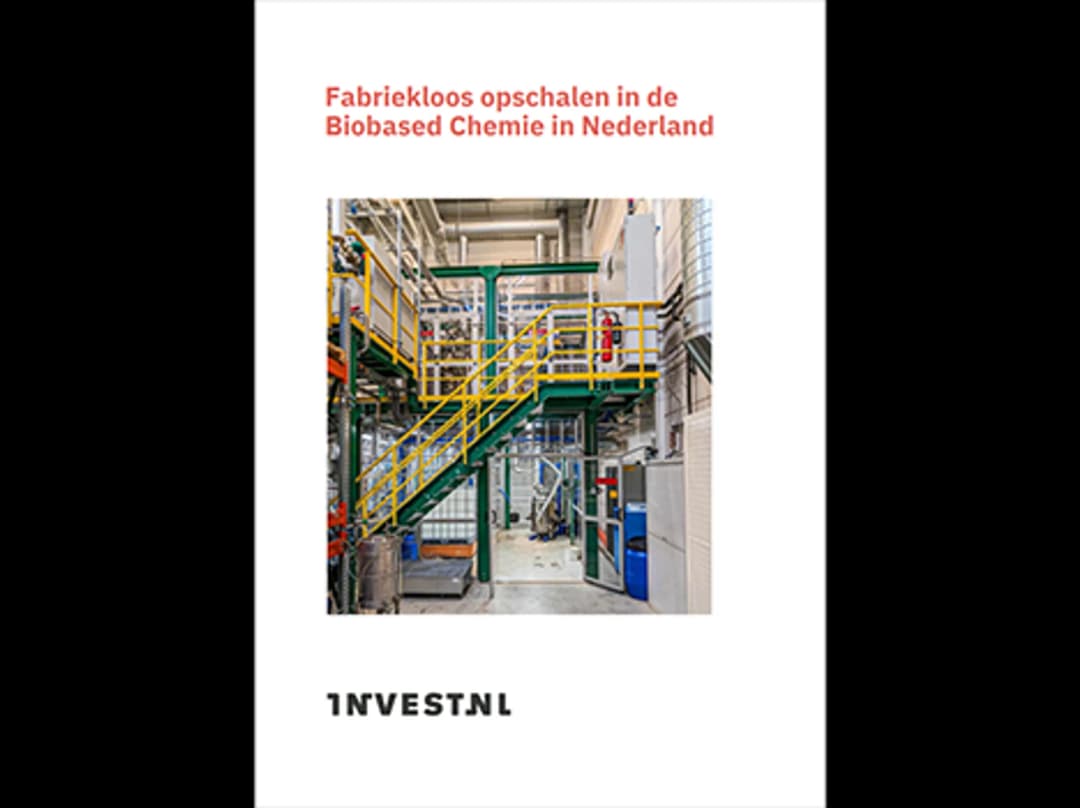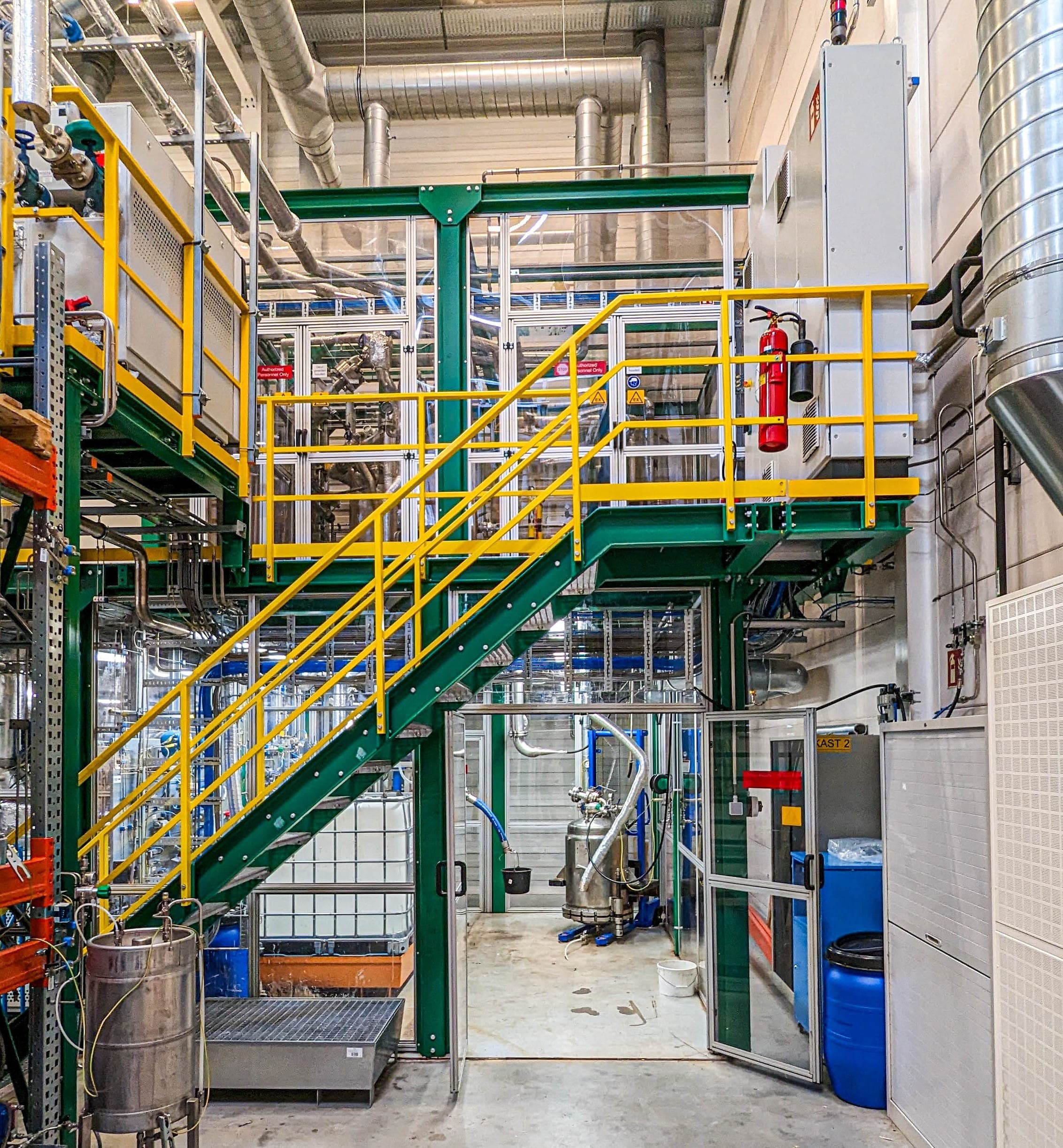
Biobased & Circular economy
—12 juli 2024
July 12, 2024
2 minutes

Today, Invest-NL has published a report titled "Scaling Up Without a Factory in Biobased Chemistry in the Netherlands." This report sheds light on the challenges and solutions surrounding the scaling up of biobased chemistry startups in the Netherlands and highlights the necessity of shared facilities to ensure the successful growth of this industry.
The chemical industry in the Netherlands is facing a major transition towards the use of renewable and bio-based raw materials, to combat environmental pollution and work towards a circular economy. Startups play an important role in this transition, but face significant challenges when scaling up their innovations. The high costs and complex technological requirements of pilot and demonstration facilities make scaling up to commercialization particularly difficult.
The report has been compiled to provide insight into the current state of affairs and to make strategic recommendations for strengthening shared facilities. These shared facilities are essential to support startups in their growth without the need for large capital investments in their own infrastructure.
The report formulates important recommendations for the entire ecosystem, such as increasing awareness and support by involved organizations and financial parties, coordinating networks through a connecting entity, increasing investment readiness by taking more risks in the early scaling phases, and researching financing options for the initial costs. The report also emphasises the importance of guiding startups through, for example, accelerator programmes like Green Chemistry Accelerator and Circular Factory.
Xandra Weinbeck, senior business development manager at Invest-NL, says about this: "Shared facilities are a crucial link in the transition to a sustainable bio-based chemical industry. They offer startups the opportunity to scale cost-effectively and gain access to essential expertise and equipment. Without these facilities, we risk that promising innovations will become stalled, which not only hampers economic growth but also slows progress towards a sustainable future."
If insufficient attention is paid to the barriers, the mismatch between the demand for and supply of shared facilities will continue to exist.
Xandra Weinbeck
sr. business development manager
